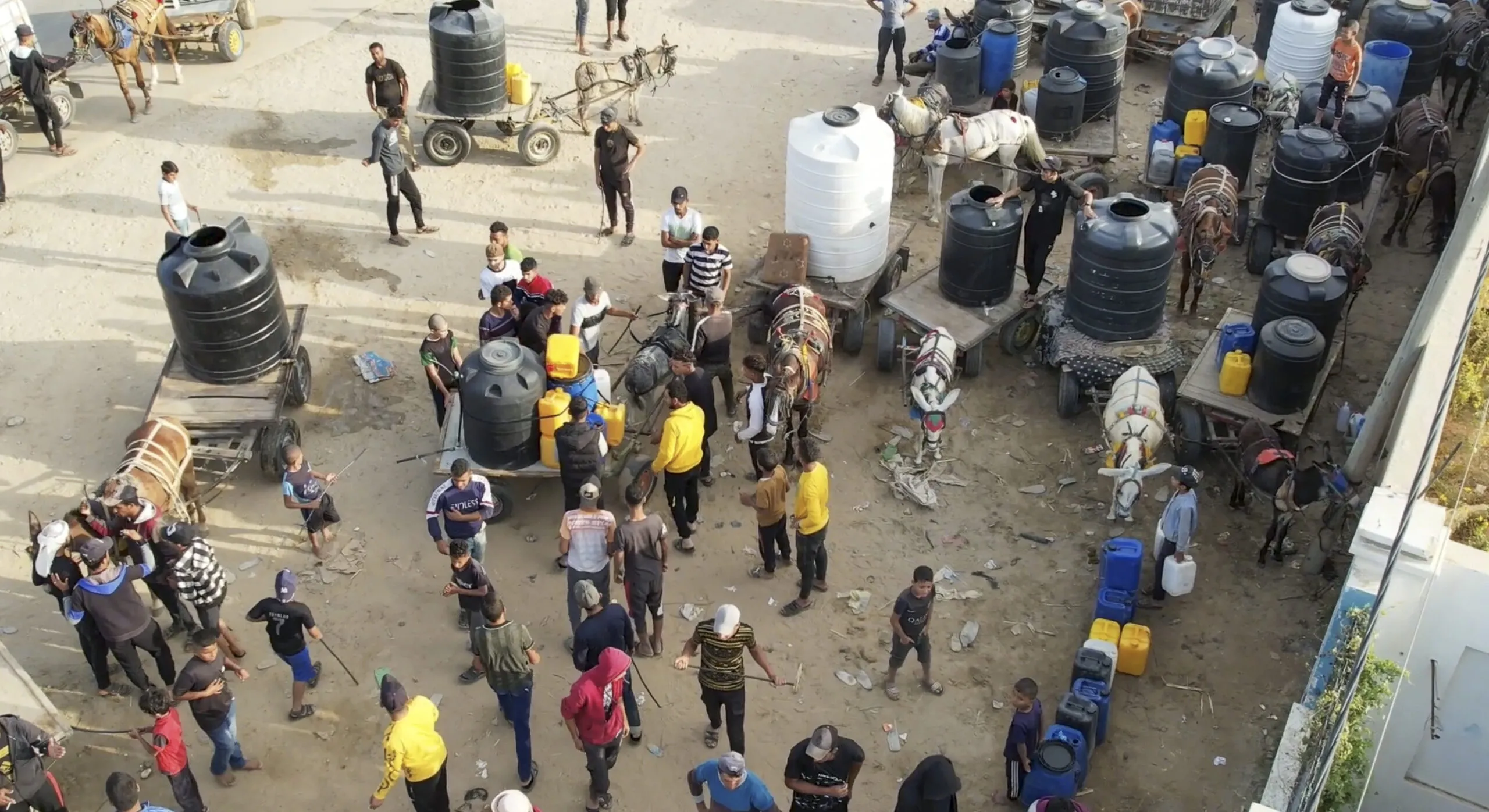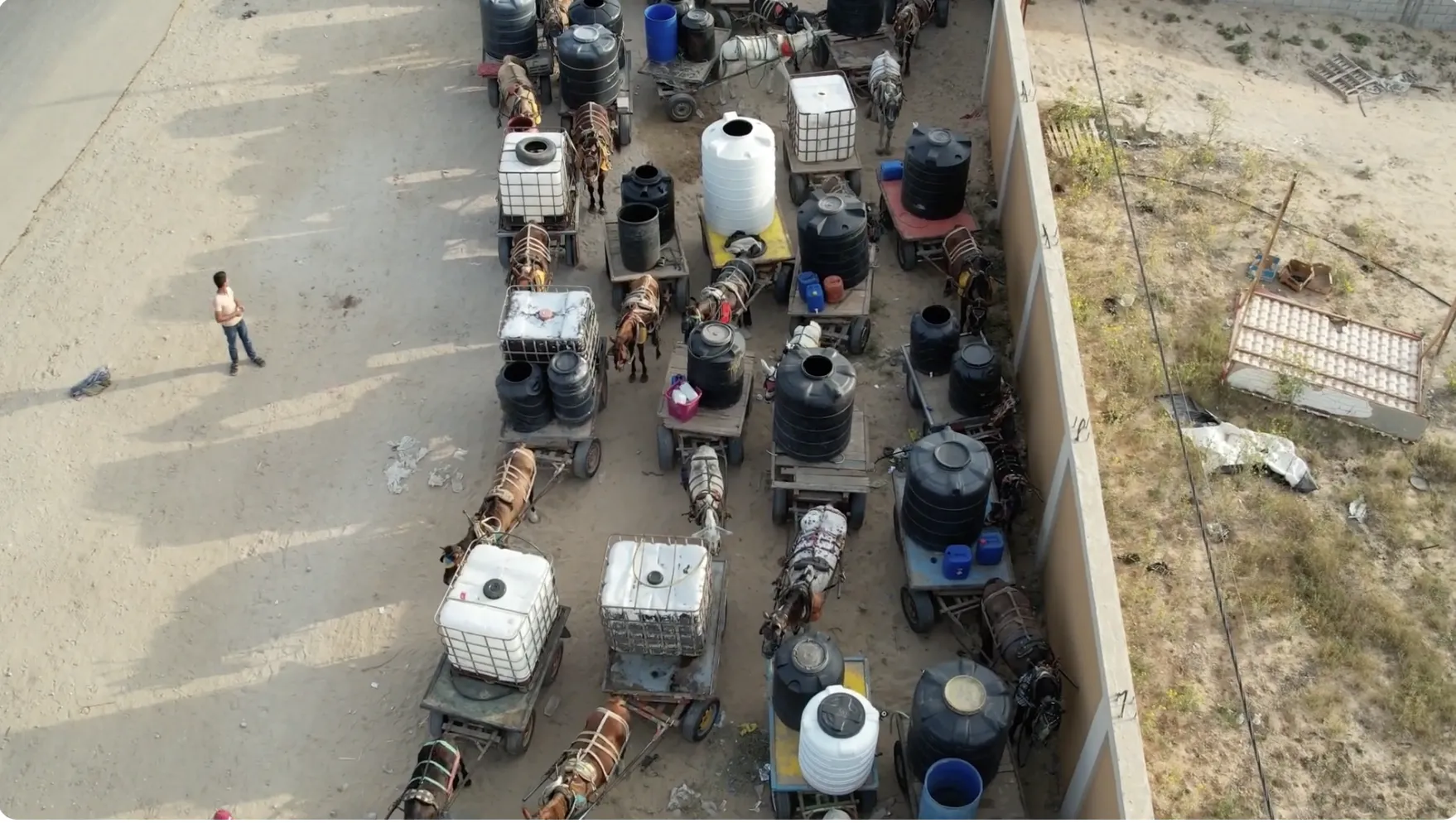“I put all of the women and the children in the car and left the men in the house,” she says from Rafah, where she now lives.
“We have with us grandchildren; the first one is two years and a half, and the other one will be four in a month.”
Salwa is just one of the more than 1.7 million people in Gaza forced from their homes since Oct. 7.
In some ways, she is fortunate. She and her family are together in a house, rather than a shelter. In the shelters, on average, 160 people share a single toilet, and there is only one shower unit for every 700 people.
But even this bit of good fortune has come with its own complications.
“I was lucky to find a house for us when we arrived,” Salwa says.
“But the problem is that it’s only people in shelters who receive humanitarian aid, so I have to go to the market and walk around 4 miles to find some biscuits and some other food for the children.”
Finding food is a critical issue, but one of the most critical for everyone in Gaza – whether in a house or in one of the United Nations shelters – is also one of the most basic: access to clean water.




